The History of CRA-WP
2010 to Present
“I never knew how many amazing women were in computer science and what they were capable of. When I saw the passion and brilliance of women around me; it made me proud of being a woman and I really felt blessed to be part of such an occasion.”
-Sumaira Shamim, 2015 Grad Cohort Attendee
CRA-WP continues to persevere in its mission, finding new opportunities to encourage and advance populations underrepresented in computing research and education in every stage of their career.
New Projects
In 2011, CRA-W received funding from the NSF to conduct a nation-wide survey evaluating the success of the Broadening Participation in Computing programs. Another goal of the survey was to understand the push and pull factors involved in attracting students to the field of computer science. The survey showed that undergraduate students who had participated in a CRA-W program were more likely to enter the research field compared to non-participants. Impressed by the success of the survey, the NSF provided funding to help the CRA-W/ CDC alliance create the ‘Center for Evaluating the Research Pipeline ‘(CERP). The goal of CERP was to collect and analyze data to help provide meaningful evaluation of experiences and outcomes for participants in our and other intervention programs, and to understand other factors leading to computing research careers.
In 2015, CRA-W partnered with Applied Computer Security Associates (ACSA) to help create the Scholarship for Women Studying Information Security (SWSIS).
In July 2019, CRA-W officially became CRA Committee on Widening Participation (CRA-WP) to reflect our broader mandate with a mission of serving a wide range of constituencies.
New Programs
In 2011, DREU began collaborating with AccessComputing to incorporate students with disabilities into the program.
In 2011, CREU for the first time offered a solo option for those who might be the only woman or minority student in their department.
In 2012, DREU began collaborating with the Alliance for the Advancement of African Americans (A4RC).
In 2015, CRA-W submitted a proposal to the National Science Foundation to develop and implement a ‘virtual research mentoring experience’ that enabled the wide spread mentoring of female undergraduates on specific subjects of research and graduate school across a far reach of campuses. CRA-W launched the program in the Summer of 2015 under the title Virtual Town Hall.
In 2019, CRA-WP launched the pilot for the GHC Returning Scholars Program focusing on providing mentoring and resources to industry professionals interested in returning to graduate school and to research.
Conferences
In 2010, the CRA-W initiated a new mentoring program at the Grace Hopper Conference consisting of separate tracks for undergraduates, graduate students and young professional academics.
2010 marked the first year in which CREU co-directors organized the first “CREU Cohort Conference,” at Grace Hopper.
In 2013, CRA-W added a Mid-Career Academic track to their mentoring program at Grace Hopper, and participated in the ‘Student Opportunity Lab’ targeted at Undergraduate Students.
In 2019, CRA-WP will host the first GHC Returning Scholars Program Luncheon at Grace Hooper targeted at industry professionals looking to return to graduate school and to research.
2000 to 2009
“Computing research and graduate school used to seem intimidating to me, but the DMP has eased my worries about the unknown. Thanks to the DMP, I can actually see myself in graduate school now!”
-Monica Noring, 2008 DMP Alum
After a decade of operation, CRA-W continued to gain strength and support, partnering with other like-minded institutions to achieve its vision of a better, more inclusive field of study and research.
New Projects
In 2001, CRA-W was awarded an NSF grant to support its investigation into the issues related to the retention and recruitment of women in graduate programs using empirical methods.
In 2004, CRA-W created the Anita Borg Early Career Award. The award acknowledges work in academia and industrial research labs that has had a positive and significant impact on the advancement of women in the computing research community.
In 2006, CRA-W published the first CRA-W Newsletter, the bi-annual publication’s purpose is to help create and maintain connections among CRA-W alums, and continue to support and inspire each other. It also serves as a source to share news on new and ongoing CRA-W programs.
In 2006, CRA-W’s proposal, “Broadening Participation in Computing (BPC): Widening the Research Pipeline” was funded by the NSF. This grant provided 1.5 million dollars in support for DMP, CREU and DLS.
In 2007, CRA-W created the Travel Grant Program as a way to support the attendance of women in research labs at conferences.
New Programs
In 2001, CRA-W, with sponsorship from Lucent Technologies, hosted the first Distinguished Lecture Series and Graduate School Recruiting Program. The campus lecture series was intended to encourage women and minorities to pursue graduate school in Computer Science and Engineering by introducing them to prominent researchers in academia and industry.
In 2003, the Career Mentoring Workshops introduced a new mentoring track dedicated to mentoring women in government and industry laboratories.
In 2004, CRA-W initiated the Cohort for Associate Professors Project (CAPP). The project’s intent was to gather together newly tenured professors and distinguished full professors to participate in mentoring workshops to discuss career development and leadership roles.
In 2005, the Coalition for the Diversity of Computing (CDC) joined in partnership with CRA-W to extend the CREW program to include all underrepresented groups, not just women. The program was renamed Collaborative Research Experience for Undergraduates (CREU).
In 2006, CRA-W’s proposal, “Broadening Participation in Computing (BPC): Widening the Research Pipeline,” was funded by the NSF. This grant supported the CRA-CDC Alliance’s development of week long discipline specific summer sessions that targeted research areas where the participation of women and other underrepresented groups were unsatisfactory. These sessions were the precursor to current Discipline Specific Workshop Series.
In 2007, the CDC-CRA-W alliance piloted a new CREU program called Multidisciplinary Research Opportunities for Women that supports research experiences for undergraduates that cut across computer science and other disciplines.
In 2009, the CRA-W, in partnership with the CDC, expanded the DMP project to include underrepresented minorities as well as women. The Distributed Mentor Project was renamed the Distributed Research Experience for Undergraduates, or DREU.
In 2009, the Cohort for Advanced Professors Project (CAPP) became the Cohort for Advanced Professionals Project after expanding to include mentoring workshops for mid-level career women in industrial and government labs.
Conferences
In 2004, the CRA-W hosted its first Graduate School Cohort in Seattle, Washington. The two-day conference focuses on mentoring and supporting female graduate students and helping them build a community.
Awards
In 2004, CRA-W received the the Presidential Award for Excellence in Science, Mathematics and Engineering Mentoring.
In 2005, CRA-W received the National Science’s Public Service Award.
1990 to 1999
“Technology is going to change our political, economic, social, and personal lives… Women need to be there saying, ‘This is how we want things.’”
-Anita Borg
In 1991 CRA Board members Nancy Leveson and Maria Klawe established The Computing Research Association’s Committee on the Status of Women in Computing Research. Their objective was “to take positive action to increase the number of women participating in Computer Science and Engineering (CSE) research and education at all levels.” The new subcommittee was supported in part by a grant from the National Science Foundation (NSF).
On June 14th 1992, The CRA’s (Computing Research Association) Committee on the Status of Women in Computer Science, held its first meeting at the University of California, Irvine campus.
New Projects
In 1992, CRA-W’s editorial column Expanding the Pipeline first appeared in the CRA newsletter. The first editor was Fran Berman.
In 1996, CRA-W published its first edition of Women in Computer Science Careers Booklet for distribution in public schools.
That same year CRA-W also began publishing the Graduate Information Kit for Women, as a means of encouraging female CS undergraduates to pursue advanced degrees.
New Programs
Throughout the 1990s CRA-W created a variety of programs, all geared towards helping women succeed in the field of Computer Science, including both students and career professionals.
In 1993, CRA-W began holding annual Career Mentoring Workshops at the Federal Computing Research Conference. The workshops were focused on providing information, mentoring and networking for students and professionals at all levels of their careers. Each workshop included panel sessions and social events featuring senior women from academia and industry.
In 1994, the CRA-W began to operate the NSF funded Distributed Mentors Project (DMP). The program was designed to pair an undergraduate with a research academic to pursue an in-depth summer research project at the academic’s institution. It would provide students with the opportunity and funding to present and publish quality research, while also allowing them to obtain a realistic view of the graduate level experience.
In 1998, CRA-W initiated the first session of the NSF funded Collaborative Research Experience for Women (CREW). The program was designed to encourage small teams of students to participate in a year long guided research project at their home university. The primary objective of the program was to provide undergraduates with research experiences that would inspire them to continue on to graduate school.
Conferences
In 1994, CRA-W helped sponsor the Anita Borg Institute’s first Grace Hopper Celebration of Women in Computing Conference. The Committee also participated in the conference by hosting a workshop on academic careers for women in computer science. This was a precursor to the three track career mentoring workshop hosted annually at Grace Hopper by CRA-W.


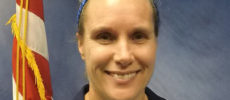

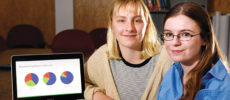
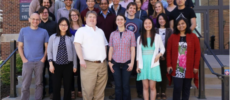
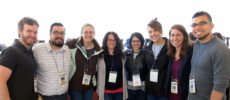
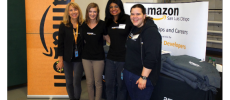




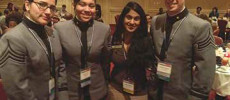





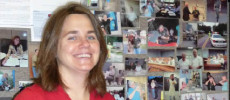
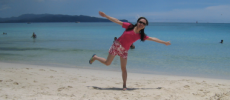

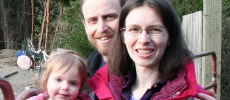


 How were you introduced to CRA-W?
How were you introduced to CRA-W?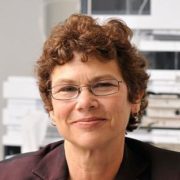 Did you feel that there needed to be the creation of a committee like CRA-W?
Did you feel that there needed to be the creation of a committee like CRA-W?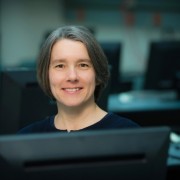 How do you think this environment (CS in the 90s) influenced the creation of CRA-W?
How do you think this environment (CS in the 90s) influenced the creation of CRA-W?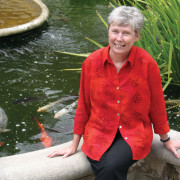 How did you get involved in the movement to encourage women in CS?
How did you get involved in the movement to encourage women in CS?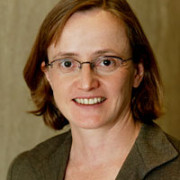 When did you get involved in the CRA-W Committee?
When did you get involved in the CRA-W Committee?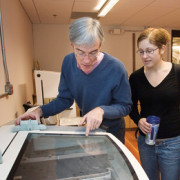 What was the best thing about working with the CRA-W committee?
What was the best thing about working with the CRA-W committee?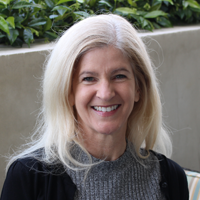 What goals did you have as a co-chair?
What goals did you have as a co-chair?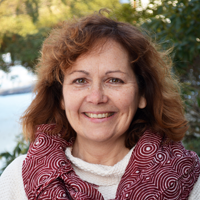 What has been your favorite part about working with CRA-W?
What has been your favorite part about working with CRA-W? What inspired the DLS creation?
What inspired the DLS creation?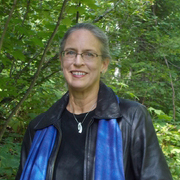 What was one lesson that you learned during your time as a board member of CRA-W?
What was one lesson that you learned during your time as a board member of CRA-W?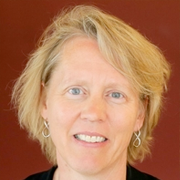 Were you passionate about helping women in computing before joining CRA-W?
Were you passionate about helping women in computing before joining CRA-W? When was the first time you heard of CRA-W?
When was the first time you heard of CRA-W?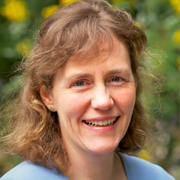 Is there any additional information you would like to share about your time with CRA-W?
Is there any additional information you would like to share about your time with CRA-W?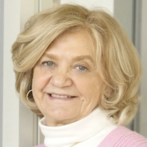 What were you seeing that sort of inspired the Cohort’s creation?
What were you seeing that sort of inspired the Cohort’s creation?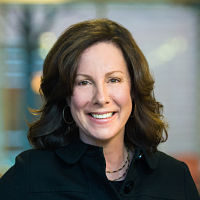 How do you think this environment (CS in the 90s) influenced the creation of CRA-W?
How do you think this environment (CS in the 90s) influenced the creation of CRA-W?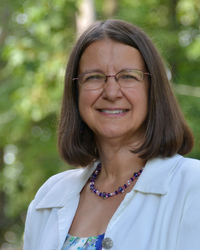 What is one lesson that you learned during your time on the board?
What is one lesson that you learned during your time on the board?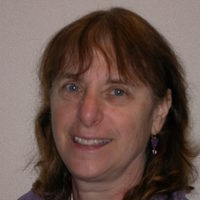 Did you have a favorite part about working with the Board?
Did you have a favorite part about working with the Board?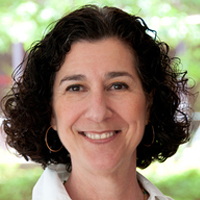 Did you have a favorite part about working with the CRA-W board?
Did you have a favorite part about working with the CRA-W board?


